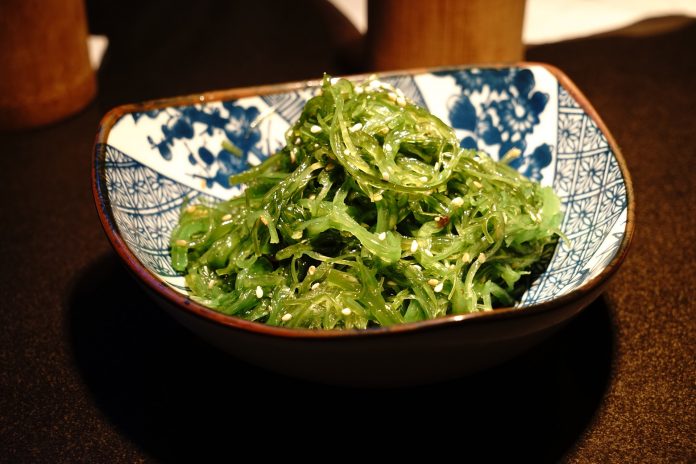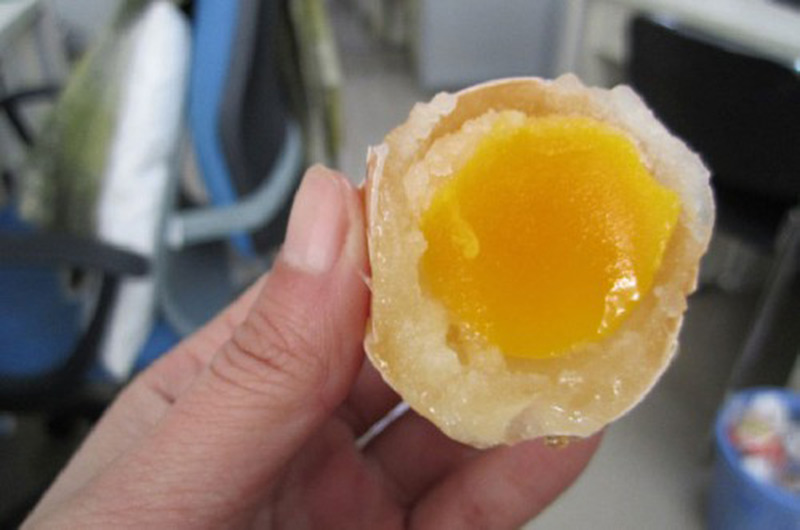
Seaweeds are among the healthiest food on the planet, thanks to their nutritional profile which is loaded with vitamins, minerals, protein and fibre – while being low in fat and calories. The Japanese have one of the highest life expectancies in the world, and it’s believed to be credited to seaweed, which plays a significant part in their diet.
Lately, a two-minute video of fake seaweeds that are seemingly made of plastic has surfaced on the internet. In the clip, a Chinese woman was seen yanking at pieces of soaked seaweed and lamenting that it cannot be torn. “Is this real seaweed? This is made of foul-smelling black plastic,” she complained.
I have heard of environmentally friendly plastics made from seaweed extracts (by Algopack). But seaweed made from plastics? *eyebrows raised* Over the past decade, stories about unethical behavior have been a regular feature on media – one being the rampant counterfeit food products manufactured and sold by China companies. We have fake rice noodles; rat meat sold as beef; recycled spices bought at knockdown prices; not to forget the notorious baby milk scandal which has killed at least 13 infants.
The rise of food ‘innovations’
Over the past decade, stories about unethical behavior have been a regular feature on media – one being the rampant counterfeit food products manufactured and sold by China companies. You must have heard about rat meat sold as beef. Fake rice noodles from rotten grain? Fake eggs fabricated from gelatin and shells made from wax? What about recycled spices bought at knockdown prices? Not to forget the notorious baby milk scandal which has killed at least 13 infants.

These irresponsibly manufactured fake foods are unquestionably toxic and totally unsafe to the human body, but what interests me the most is the mindset behind these unscrupulous businessmen.
Why? That’s my burning question.
Despite being debated to be the world’s emerging superpower, we cannot ignore the fact that majority of China’s population still live in poverty. Poverty and hunger drive people to crime. Not that they do not have a conscience, but conscience doesn’t feed their starving family. So they are desperately forced to create these deceiving and harmful products in an effort to earn blood money. But then again, this does not explain why the large and wealthy companies produce fake food for profits.
The fact that this country is imbued with counterfeit food is not just one person’s fault, but that of many, plus contributing factors. Education issues can be one of the factors. Maybe they are not infused with the importance of social responsibility within the country. And definitely not globally – China is ranked 64th in Simon Anholt’s Good Country Index despite it being a big nation. Most people are poor rural workers and I would assume the education systems there are much worse than the already ineffective systems in bigger cities.
Or environmental issues. With the massive population, it’s a dog-eat-dog world out there, and you got to be fierce and ruthless to survive the competitive environment. You do whatever it takes to survive.The government Another contributing factor – the government. When people look up to their government for decision-making, to install robust laws and regulations, to oversee potential health issues, and if the government does not run things well, things will quickly spiral out of control in full effect.
There’s also the aspect of the culture where dirty money and scams are rampant in the country. As National Post reports, China is emerging as a global hub for money laundering, not only for Chinese but for criminals worldwide. There are a couple of options for cleaning dirty money – through major state-run banks, import-export schemes and informal money transfer systems that date all the way back a millennium. Deception and crimes could become ‘normalized’, a routine part of everyday life.
These are just some of my viewpoints – it is still really hard to understand how the situation of fake food and other counterfeits can become so rampant. Innovation needs to be put on the right track – not on fake, low quality and poisoned food.






